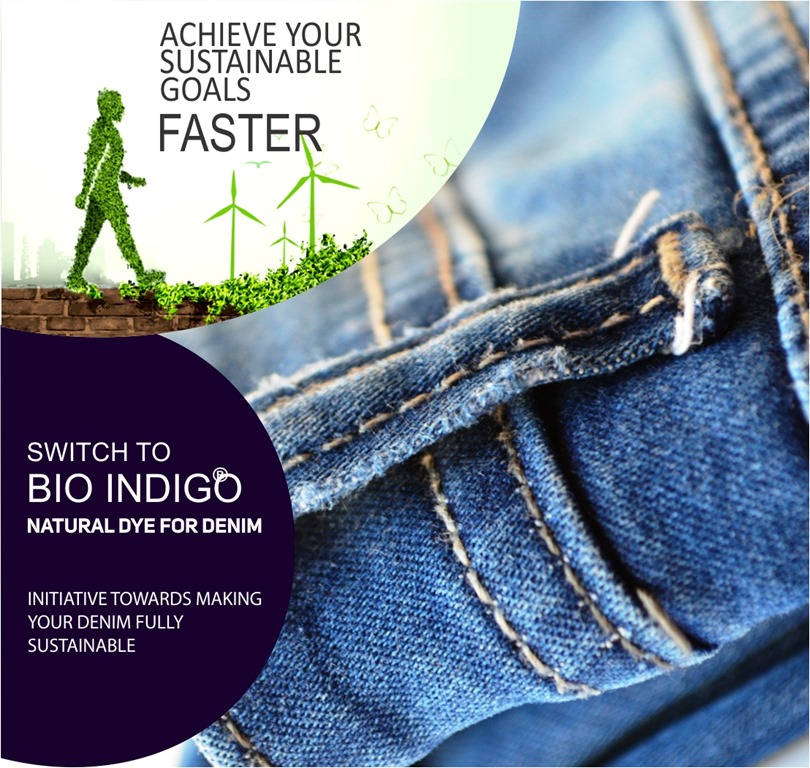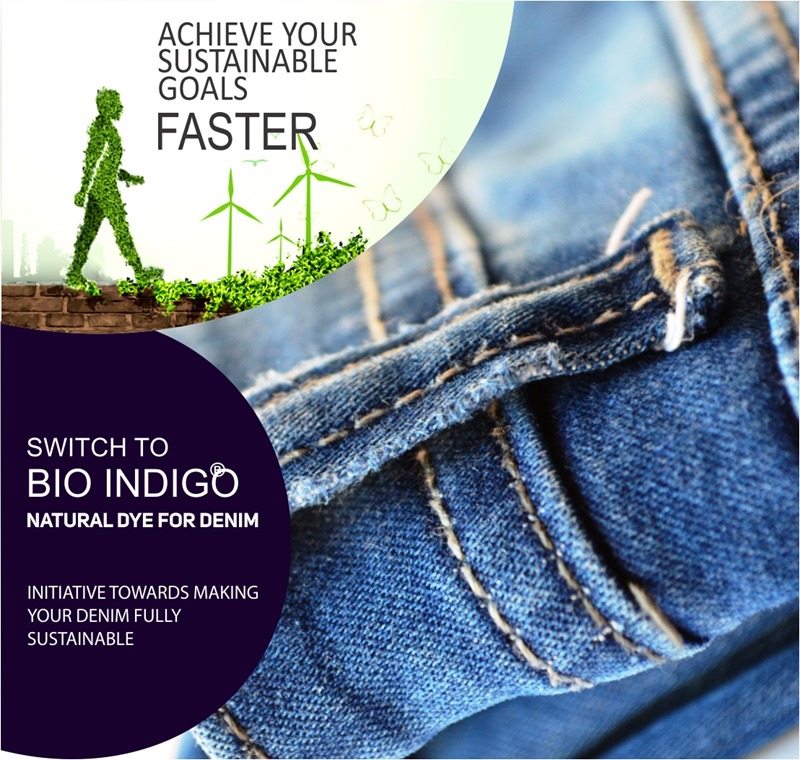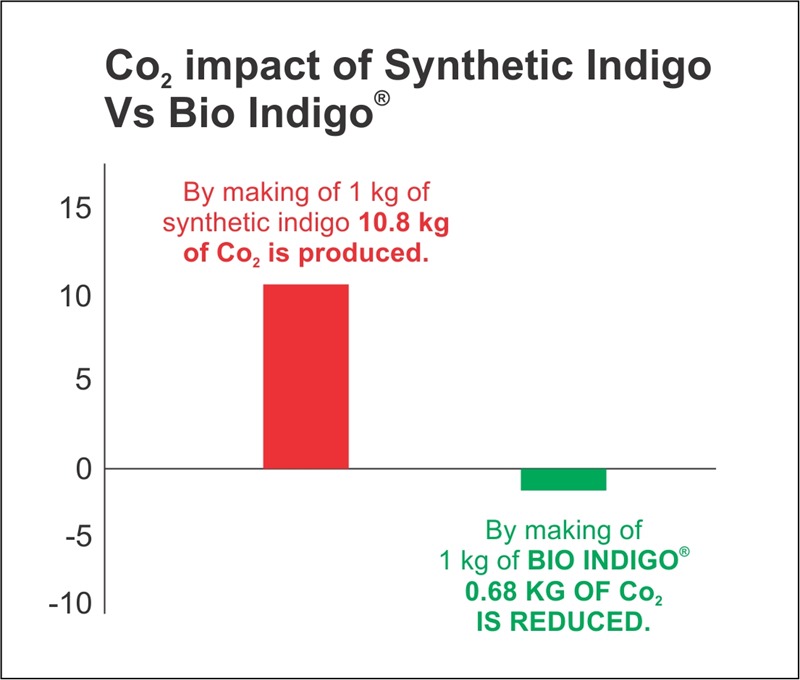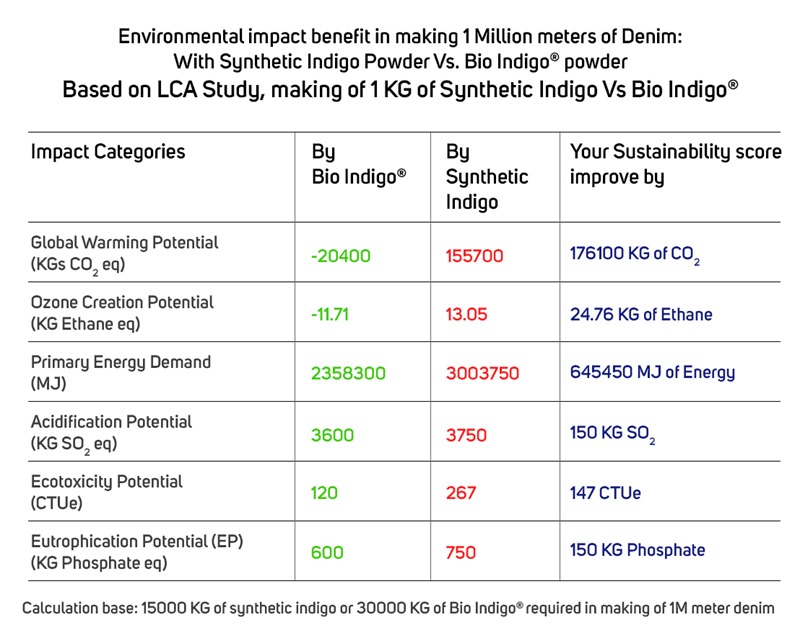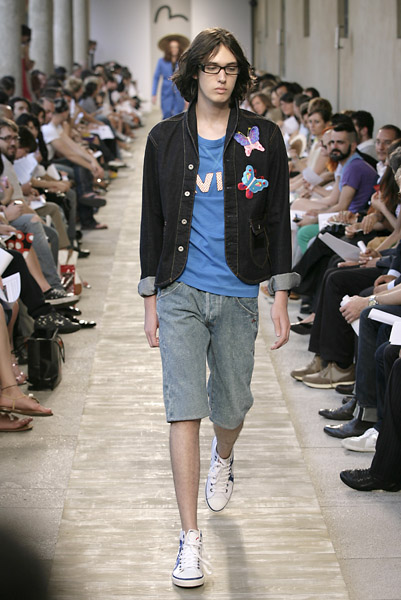Textile Industry is growing big day by day and so the level of pollution. Gradually, the industry has started sensing the urgency for reducing the pollution but the pace for the purpose is a bit slow. The industry has taken few initiatives like the shift from Potassium Permanganate, lesser water consumption, waterless dyeing, Better Cotton Initiative, etc. but still, Natural Dye is the segment that is not explored much yet. Natural dyes can be highly effective in reducing the level of pollution in the Textile Industry. Since emergence, they have normally passed all the certifications and standards without any modification.
Denim is one of the most preferred articles of style nowadays in the textile world. Blue jeans are most likely what one considers as far as denim is concerned, though usage of denim has gone past the usual pattern and colors. 10% of the whole cotton generation around the world transforms into denim. It indicates the huge demand and popularity of denim around the globe.
Synthetic Indigo is used to accomplish such huge demands for the denim. Usage of such high quantities of Synthetic Indigo is one of the major concern for sustainability. The textile industry is making praiseworthy efforts for flourishing sustainability but Synthetic Indigo is creating an alarming situation. There have been some attempts at reducing the impact of Indigo dyeing through various process controls etc. However, there can still be no comparison on Synthetic dye with the Natural one.
Bio Indigo® By AMA Herbal
India based company AMA herbal has been producing Bio Indigo® for a long time and they have been at the forefront of pushing Natural Indigo dyes in the supply chain around the world . CEO and Owner Yawar Ali gave us detailed statistics on how the Natural Indigo (Bio Indigo®) can help in greatly reducing carbon footprint as compared to Synthetic Indigo. He stresses :
” If we start correcting our surroundings, the world will be a better place. Therefore, preferring a sustainable and environment-friendly dyeing option can be the game-changer. If you want to go for a sustainable dyeing option then you can go for Bio Indigo® . To reduce 10kg of Carbon Footprint from your production, you will require too many things and expenditure whereas if you shift consumption of 1kg of synthetic Indigo to Bio Indigo® you can reduce 10kg of CO2 in lesser expenses and lesser efforts. Bio Indigo® is made to counter the limitations Textile Industry is facing against constantly increasing pollution levels. Life Cycle Analysis (LCA) report clearly states that consuming 1KG of Bio Indigo® results in a 10KG lesser Carbon footprint in comparison to Synthetic Indigo. So, if you are willing to craft a sustainable future, you need to sow its seeds today by initiating for the right. “
He gives statistics below to prove the difference :
AMA Herbal team feels very strongly that Bio Indigo® is an unexplored segment and shifting preferences towards Bio Indigo
, a greater contribution towards sustainability can be made. AMA team further gives an example of how the usage of Bio Indigo®
can affect carbon emissions.
“World’s total denim manufacture is estimated at around 7.7 billion meters. Out of this total production let’s assume 90% of such manufacture (6.93 billion meters) is used for making blue denim. When we use Synthetic Indigo for dyeing such quantity then it will generate935.13 million kg of CO2 emission, which will certainly dent our ecosystem quite heavily. Now just presume if we are able to shift 20% of 6.93 billion meters from Synthetic Indigo to Bio Indigo
then how it will impact the scenario? In that situation, we can reduce 36.14 million kg of CO2 emission. It will become a big change. That’s why we are mentioning that Bio Indigo
is the segment in the textile industry which is not explored much yet. We are endeavoring hard to conquer all the odds and if we become able to shift our dyeing preferences from Synthetic Indigo to Bio Indigo
it will be a sustainable revolution. It’s time for exploring the unexplored segment…Bio Indigo
. ”
“Our greener strategies will flourish sustainability if we initiate to shift towards Bio Indigo. We all are dedicated entities of the textile industry and endeavoring hard to make it fully sustainable. To bring the inspired change we need to adapt to such change first. Let’s shift to Bio Indigo
for building greener and more sustainable future” – Yawer Ali Shah
Contact AMA Herbal for more details on their herbal dyes at yawer@amaherbal.com


